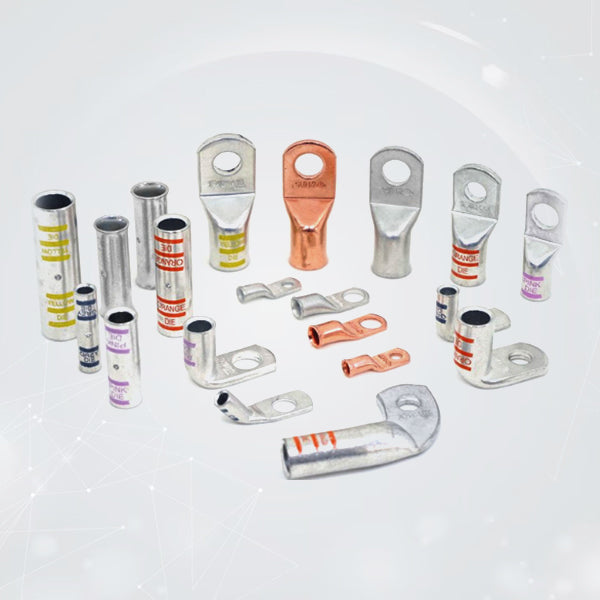
Powering the Waves: The Crucial Role of Cable Lugs in Marine DC Power Battery Back-Up Systems
Introduction:
Embarking on a marine journey, be it a leisurely cruise or an adventurous sail, demands a reliable and efficient DC power battery backup system. Among the unsung heroes working behind the scenes to ensure a seamless maritime experience are cable lugs. In this blog post, we will explore the vital application of cable lugs in marine DC power battery backup systems and understand how these unassuming connectors play a crucial role in powering the waves.
Understanding Cable Lugs:
Cable lugs, also known as cable connectors or terminals, are small yet critical components that bridge the gap between electrical cables and various components within a power system. In the challenging marine environment, where corrosion, vibrations, and constant movement are prevalent, the role of high-quality cable lugs becomes indispensable.
The Significance of Cable Lugs in Marine DC Power Battery Back-Up Systems:
1. Corrosion Resistance:
Saltwater is an ever-present threat in the marine environment, promoting corrosion in metal components. Marine-grade battery lugs made from corrosion-resistant materials, such as tinned copper or specialized alloys, act as a barrier, safeguarding the integrity of electrical connections and prolonging the life of the battery backup system. SELTERM marine-grade lugs are specially designed to endure adverse corrosive conditions and come with a thick and consistent layer of electrodeposited tin plating over pure ETP-grade copper.
2. Secure Connections:
Stability is paramount in a DC power battery backup system, where reliable power is essential for navigation and safety. Cable lugs ensure secure connections between batteries, inverters, and other system components, minimizing the risk of power interruptions and potential safety hazards. Using high-quality lugs such as the ones offered by SELTERM can lead to a more efficient battery backup system.
3. Proper Sizing and Compatibility:
To maximize the efficiency of electrical connections, selecting the right size and type of cable lug is crucial. Proper sizing not only ensures compatibility with the battery and other system elements but also prevents overheating and potential damage to the components. SELTERM provides a cable size compatibility chart to help consumers pick the correct terminal size. SELTERM also offers 4/0 XL terminals that are specially designed to work with the 4/0 AWH UL1426 finely stranded marine boat cables as the standard SAE spec 4/0 AWG lug would be too small for this cable type.
4. Heat Dissipation:
Battery charging and discharging cycles generate heat in DC power systems. Cable lugs designed for marine applications should facilitate efficient heat dissipation, preventing overheating and contributing to the long-term reliability of the electrical connections. Using heavy wall marine grade lugs such as the ones offered by SELTERM can lead to reduced heating.
5. Weather Resistance:
Exposure to the elements is unavoidable in marine environments. Cable lugs with weather-resistant insulation materials protect connections from moisture, UV radiation, and extreme temperatures, contributing to the overall durability of the battery backup system. We recommend sealing off the wire termination with the use of SELTERM 3:1 dual wall heat shrinks which come with special glue to help seal off the connection from moisture.
6. Ease of Installation and Maintenance:
The design of cable lugs should enable easy installation and maintenance. Quick and secure installation reduces downtime and simplifies routine checks and maintenance, making it more accessible for boat owners or technicians to manage their DC power battery backup systems effectively. Keeping this consideration in mind, we have used a special matte tin plate on SELTERM marine-grade lugs which can withstand the excessive heat generated by the soldering torch. Hence the installer is free to choose crimping or soldering during the installation process.
Conclusion:
In the realm of marine DC power battery backup systems, battery cable ends emerge as silent champions, ensuring the reliability and safety of electrical connections that power maritime adventures. Investing in high-quality, corrosion-resistant cable lugs is a prudent choice for boat enthusiasts, as these connectors play a pivotal role in maintaining a steady and efficient power supply. As the waves continue to be explored, the importance of cable lugs in sustaining dependable electrical infrastructure becomes increasingly evident, solidifying their status as indispensable components in any maritime adventure.





